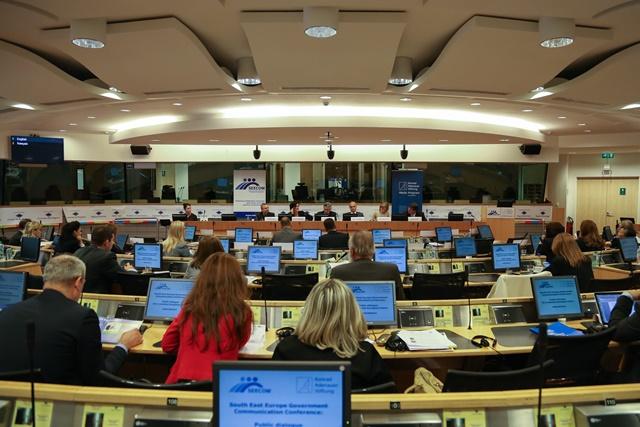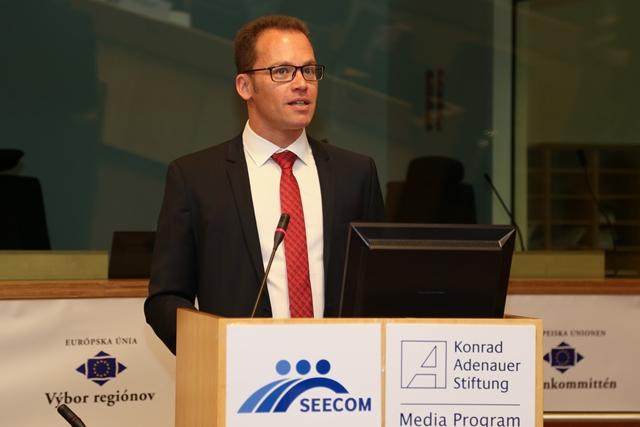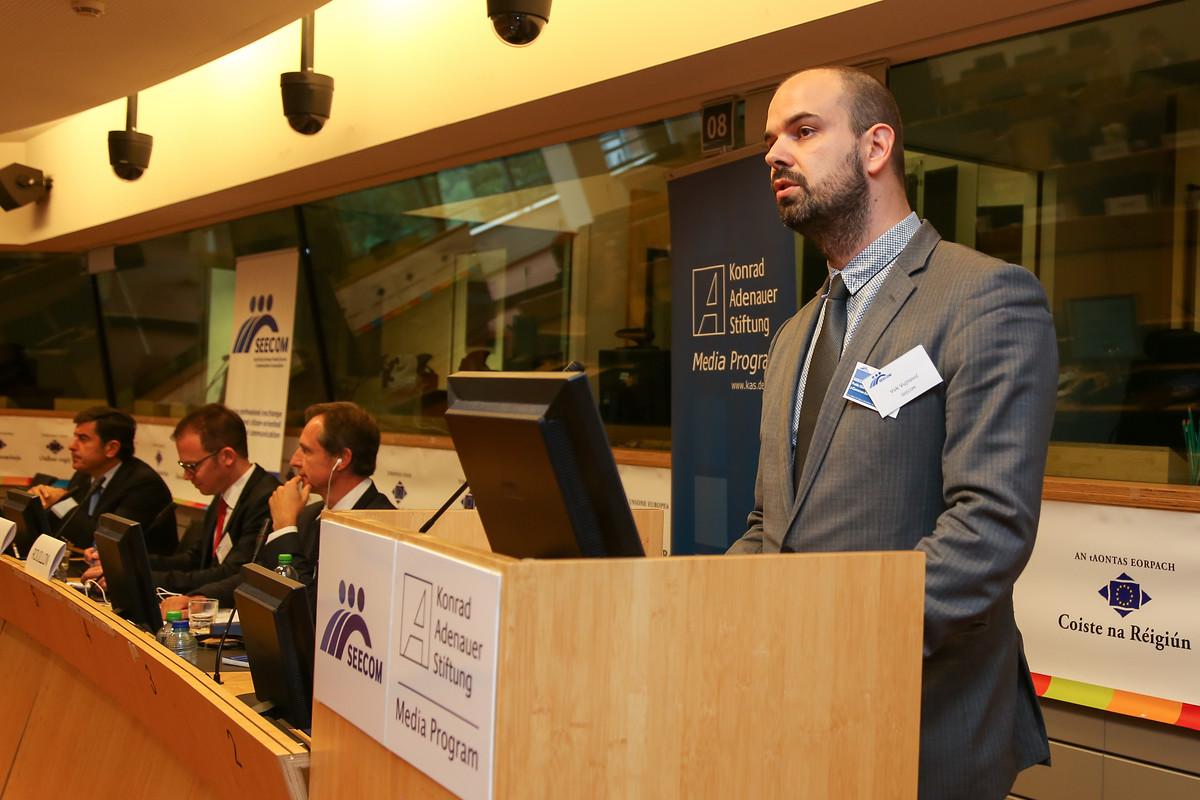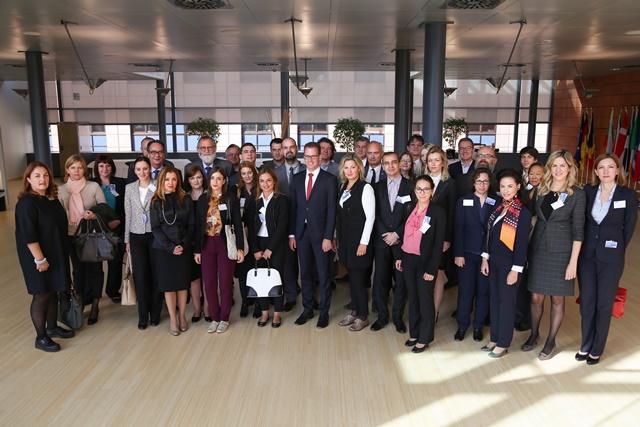Perception of the EU in the context of Brexit and the refugee crisis was the main topic of the SEECOM conference on 6th October 2016. This is the biggest conference for government communications experts from South East Europe and was held for the fifth time – on this occasion in Brussels. The hosts were the KAS Media Program South East Europe, the SEECOM association, jointly founded by the KAS, the European Economic and Social Committee (EESC) and the Committee of the Regions (CoR).
Some 80 PR specialists and politicians from governments, parliaments and international organisations from more than 15 states took part in the conference. With the cooperation of the EU institutions, the network of South East European public sector communicators could be further strengthened at regional and European level.
The conference was opened by SEECOM Secretary General Vuk Vujnović and Christian Spahr, Director of the KAS Media Program South East Europe. Spahr emphasised the significance for SEECOM of meeting in Brussels, where the association’s most important partners are located. It was necessary to strengthen the ties between senior government spokespersons from the Balkan region and their peers in the EU. "The international view of South East Europe is too often restricted to the challenges of transformation like the fight against corruption or the need to improve democratic institutions. The Balkan countries play a crucial role for stability in Europe and for the EU’s geopolitical interests," said Spahr. Vujnović underlined the importance of professional political communication: "Meaningful dialogue between governments, civil society and citizens is a critical element of political stability, social cohesion and economic progress."
There was a vigorous debate among the communications experts on EU public relations in South East Europe in the course of the refugee crisis. They agreed that the EU needed to find new forms of dialogue with civil society, including simpler and clearer messages, addressing not only facts but also citizens’ personal sensibilities.
Communicating European values: the need to work together with civil society
The way in which the EU communicates with the accession countries, and globally, was the main focus of the SEECOM conference. Spahr, as the host, emphasised that it was important, particularly in times of political crises, to engage more actively with shared European values. In competing with other political models the EU had to be
more successful in explaining its position and fundamental principles.
EESC Vice-President Gonçalo Lobo Xavier observed in the opening session that communication with the public lacked an unambiguous system of values. Regional initiatives and cooperation between governments and organisations in civil society were of particular importance to renew awareness of European virtues.
The Rapporteur on Communication of the Committee of the Regions, Christophe Rouillon, made clear in his speech that European values had to be internalised and defended by both politicians and citizens.
Angelina Eichhorst, Director for Western Europe, the Western Balkans and Turkey of the European External Action Service (EEAS), spoke about Brexit and its consequences for the EU. It was essential to look for points of contact with citizens to develop shared perspectives: "Young people in particular need more inspiration, and this is also true for the project of Europe." The EU could improve its communication with citizens if it had a better understanding of their wishes and needs.
More in the report.










